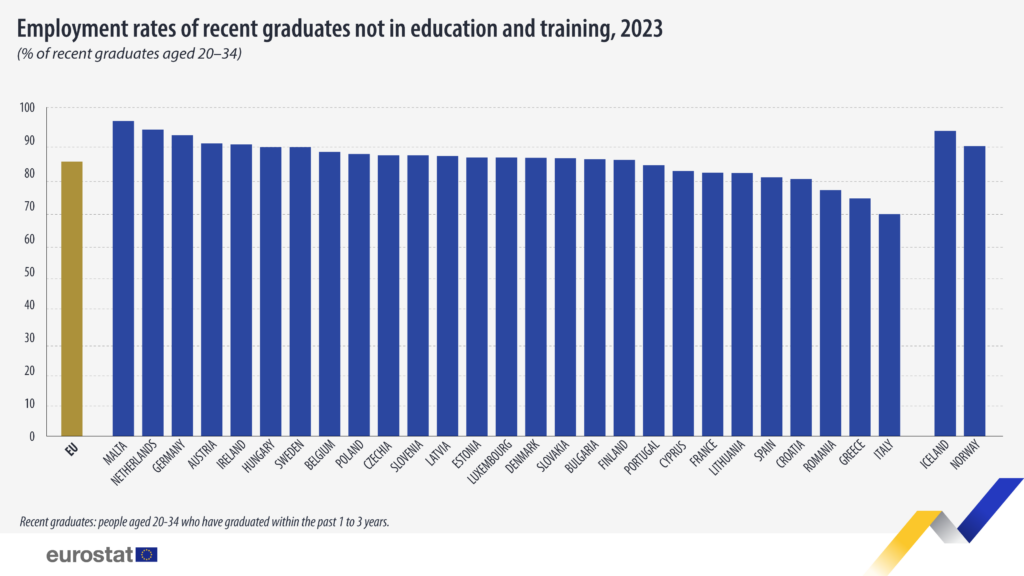Brussels – Young and unemployed, in any case, precarious. Education and employment in Italy work poorly, especially compared with European Union partners. Employment data of recent graduates, or those under age 35, released by Eurostat shows a struggling country. According to the study, recent graduates in Italy are the last to enter the labor market. In 2023, it had the lowest employment rate in the EU for men and women fresh out of college.
According to the European Statistical Institute, recent graduates are individuals aged 20-34 who completed their studies within the past 1 to 3 years at medium or tertiary education levels. However, for them, with their title and specialization, the door of uncertainty opens, particularly in Italy, where one in three under-35s remains empty-handed and with empty pockets.
 On average, 83.5 percent of recent graduates within the European Union find employment immediately after completing their academic degrees. While Malta (95.8 percent), the Netherlands (93.2 percent), and Germany (91.5 percent) stand out as models of excellence in their ability to attract newly qualified young people into the labor market, “the lowest employment rates were recorded in Italy (67.5 percent), Greece (72.3 percent) and Romania (74.8 percent),” Eurostat notes.
On average, 83.5 percent of recent graduates within the European Union find employment immediately after completing their academic degrees. While Malta (95.8 percent), the Netherlands (93.2 percent), and Germany (91.5 percent) stand out as models of excellence in their ability to attract newly qualified young people into the labor market, “the lowest employment rates were recorded in Italy (67.5 percent), Greece (72.3 percent) and Romania (74.8 percent),” Eurostat notes.
For the eurozone’s third-largest economy, the snapshot highlights a problem that must be solved if the present and future competitiveness of a Country grappling with growth problems is not to be affected. The data released today (Aug. 21) on the non-participation of recent college graduates takes on an even more relevant dimension when cross-referenced with data on college graduates. In Italy, there are few college graduates; even fewer end up in the workforce. The overall assessment is a wake-up call for a country that has to reverse course to remain a player.
English version by the Translation Service of Withub
![[foto: Wikimedia Commons]](https://www.eunews.it/wp-content/uploads/2024/05/Helsinki_University_of_Technology-350x250.jpg)






